Trouble In Paradise (1932)
Directed by: Ernst Lubitsch
Written by: Grover Jones, Samuel Raphaelson
Starring: Charles Ruggles, Herbert Marshall, Kay Francis, Miriam Hopkins
HCF REWIND NO.80. TROUBLE IN PARADISE [US, 1932]
OUT ON DVD: 12th November, Eureka’s ‘Masters Of Cinema’
RUNNING TIME: 83 mins
REVIEWED BY: Dr Lenera, Offical HCF Critic
In a Venice hotel, Francois Filba wakes up after being knocked on the head and robbed, then promptly falls back onto the floor again. The culprit; high class European thief Gaston Monescu, who has committed a series of audacious robberies. He espies a beautiful woman in a boat and immediately falls in love. The woman is Lily, a pickpocket masquerading as a countess. When Lily tells Gaston she knows who he is and then shows him that he has stolen the wallet that he took from Francois, they realise they are soul mates and become a couple. They leave Venice for Paris, and go to work for the famous perfume manufacturer Madame Mariette Colet, with the intention of stealing a great sum of money from her safe, which Monescu, as her secretary, has arranged to be diverted there…….
The great director Billy Wilder used to have a sign on his desk which said “what would Lubitsch do?”
Eureka’s press release for this film say that it is “regarded as one of the finest romantic comedies ever produced in Hollywood”. The term ‘romantic comedy’ is one that strikes fear into the hearts of most of us who work for this website and probably many of our readers too, but there was a time when, believe it or not, this kind of thing was actually done well, with cleverness, sophistication and good dialogue. You only have to compare the sparkling, lively and sweet The Shop Around The Corner with its flabby, charmless and dull remake You’ve Got Mail to see what I mean. The Shop Around The Corner was directed by Ernst Lubitsch, who was one of the masters of the form. In fact, the term ‘the Lubitsch touch’ was widely used to describe the subtlety, economy, wit and intelligence that became a hallmark of his films which also include to Be Or Not To Be and Ninotchka. His films were made for adults who don’t require everything to be spelled out for them, and I very much doubt that there would be a place for them if they were being made today.
Trouble In Paradise is one Lubitsch film I had not seen and actually for a very long time it was quite hard to see. Though it’s hard to imagine now, a planned re-release in 1935, three years after it first came out, was stopped by the censors as it was by then considered unsuitable for release with all its sexual innuendo and protagonists who were thieves but still likeable. Censorship had tightened considerably within those three years and many older films were cut [a few weeks I reviewed a classic case of this, the 1931 Dr Jekyll And Mr Hyde]. Trouble In Paradise is actually not always as subtle as some might like to make out; the opening titles show ‘Trouble In’, then below the words and before the word ‘Paradise’ appears, we see a shot of a bed, so what we are really about to watch is something called Trouble In Bed! No censor in 1935 would have allowed something so blatant! When, soon after, Gaston and Lily have their sexually charged sequence when she tells him she knows who she is and is clearly’ turned on’ by the fact that he is a famous thief, and when we cut to the outside of the door of their room which has a ‘DO NOT DISTURB’ sign on it, you can imagine cinema’s Moral Guardians having fits!
Though it opens with a gloriously witty shot of a man singing an opera aria dumping rubbish into a gondola, most of Trouble In Paradise takes place in two hotels. It’s very much an ‘interior’ film, but certainly does not feel stuffy due to the elegant camerawork and is actually really great to look at due to some awesome Art Deco sets which, if you look closely, often contain details which comment on the action that is currently playing out. I only noticed a couple of things on first viewing and I reckon it would take about two more viewings to actually see everything. The glorious designs help give an impression of exotica [which would certainly have appealed to Depression-era audiences] without really emphasising it, a rich, lush world which is ripe for the plucking, which is why we like the two thieves and at times want them to get away with what they are doing. Gaston and Lily are such a likeable couple; sexy [they seem to get as sexually excited by robbery as the couple in Gun Crazy], funny and full of chemistry.
Of course a spanner in the works soon reveals itself, and that spanner is Mariette. She initially seems like someone you want to get robbed, but gets more and more likeable as the film progresses and the old thing of the perils of mixing business with pleasure rears its head. It’s very strange, because you almost want them to ‘happen’ even though he’s cheating on Lily and they don’t seem right for each other. There is a great scene where Gaston [who was actually based on a real person called Georges Manolescu, a Hungarian con-man] is in Mariete’s room and seems to be trying to decide whether to leave the room or stay and have sex with her; you just have to fill in the gaps yourself but if you do the scene is a masterclass in subtle writing and staging. The film moves smoothly from scene to scene and nicely accelerates near the end, while you really don’t know which woman Gaston will end up with. The ending is both cynical and cute. This film certainly does have heart; Lubitch’s films, despite often being as sharp as Billy Wilder’s, were usually more sympathetic to their characters, and that extends to the supporting ones. A subplot of two men who initially hate each other and become friends shows great love of human nature without being cloying.
The humour is mostly more ‘amusing than ‘laugh-out-loud funny’ and some of the jokes only work if you’re ‘in the know’. I got tired of the constant shots of Gaston running up and down stairs until I remembered that star Herbert Marshall only had one leg. I did ‘get’ a glorious musical joke where, as a soprano sings, “I love you,” the pages of the conductor’s musical score flip over to symbolize the passage of time. The key of the singing shifts from major to minor, as she continues singing: “I hate you.” The chorus responds: “She hates him.” There is quite a bit that may go over the heads of some modern viewers, but watching Trouble In Paradise gave me a slight feeling of sadness. I’m a huge fan of films old and new and go to the cinema about once a week, but I can’t help thinking if cinema has lost something it used to have. Script writing, certainly, seems to be at an all-time low, and they have it easy now, not like back in the old days where people like Sameuel Raphaelson [Lubitsch’s usual writer] had to be implicit rather than explicit. If this time was made today and somebody like Richard Curtis had written this, Gaston and Lily’s ‘revealing the truth’ meeting would have probably involved them swearing at each other, Gaston would have stopped being the thief, the supporting character played by Edward Everett Horton [an actor who just has to flash his beady eyes to make me laugh] would have been gay….and….o I don’t know….I’m sounding like the worst kind of politically incorrect old fuddy-duddy….but I’m sure you get my point.
Of course one of the main reasons I was looking forward to seeing this film was a chance to see Dr Jekyll And My Hyde’s Miriam Hopkins in another role, and it’s a totally different part that still allows her to showcase her beguiling and very sexy combination of innocence and raw sexuality, something which for me she carries off far better than Marilyn Monroe. Kay Francis initially seems a bit stiff but it’s probably her character and he delivers some very subtle ‘come-ons’ superbly. Herbert Marshall has always struck me as being a bit wooden but here he is smooth and charming, though I can’t help thinking if the original choice of Cary Grant [he was considered too young] would have been better and raised Trouble In Paradise even higher. I’m not sure if, overall, it’s quite as brilliant a film as its reputation; there are a few other films of its subgenre from Hollywood’s Golden Age I would rate higher, but I still thoroughly enjoyed this delicious soufflé of a film and can’t wait to watch it again. I may write for a website called Horror Cult Films, but it’s nice to watch all sorts of movies, so give yourself a treat and check out this film, which is most definitely in the category of ‘they don’t make ‘em like that anymore’. And if I hear the word “tonsils” any time soon, I might very well break into hysterics.
The DVD from Eureka Entertainment include:
* New high-definition transfer in the film’s original aspect ratio
* Optional English subtitles for the deaf and hearing-impaired
* Illustrated booklet featuring the words of Lubitsch, rare archival imagery, and more
* Further details to be announced nearer the release date!

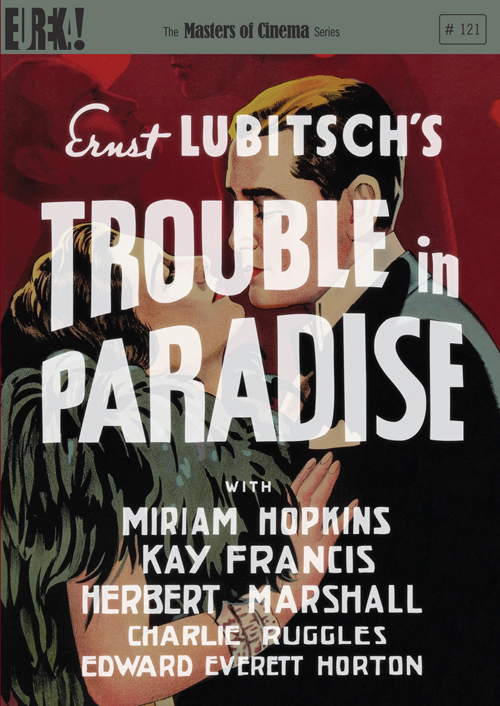
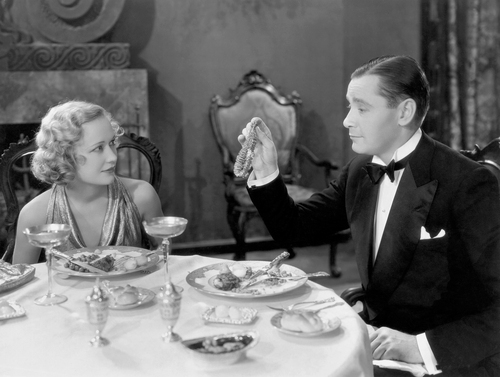
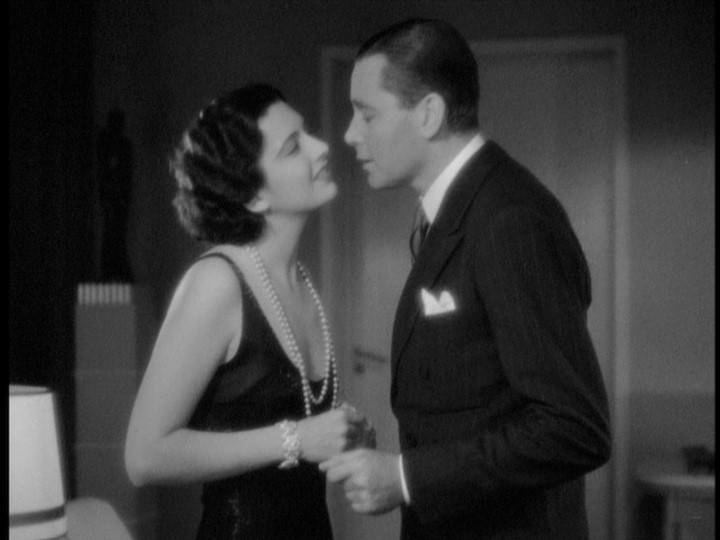



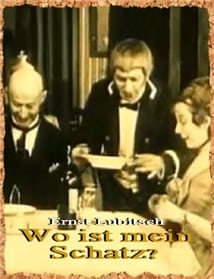
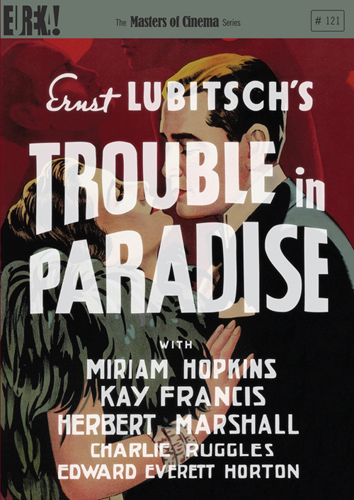
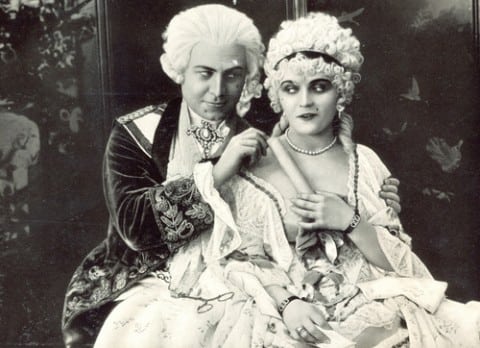
Be the first to comment